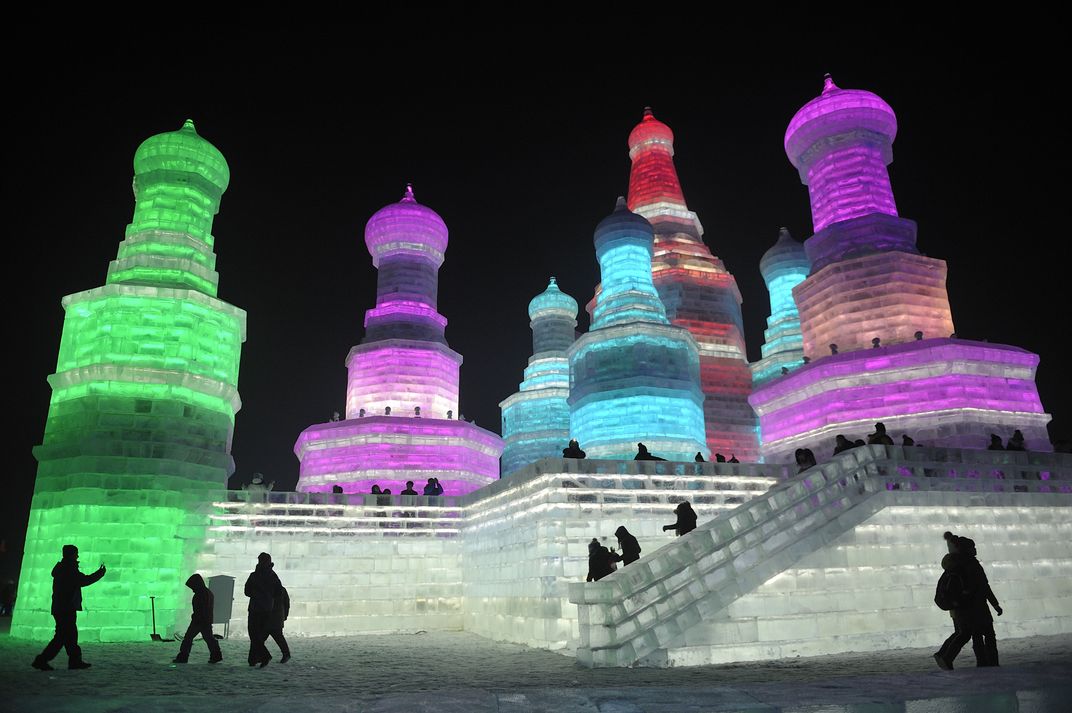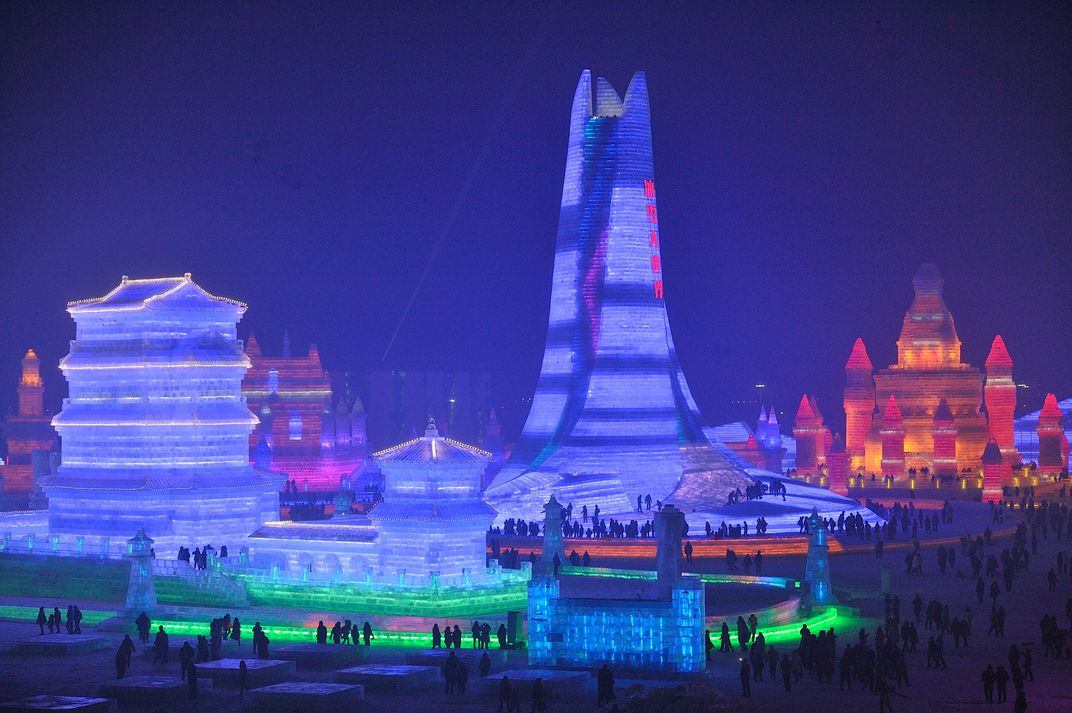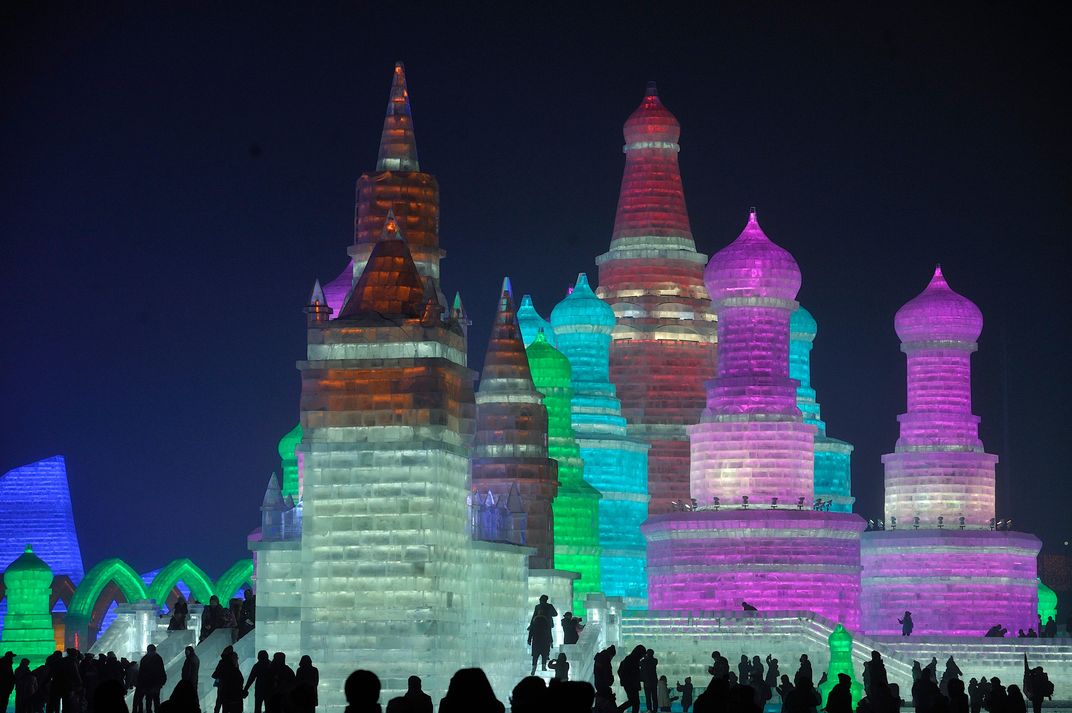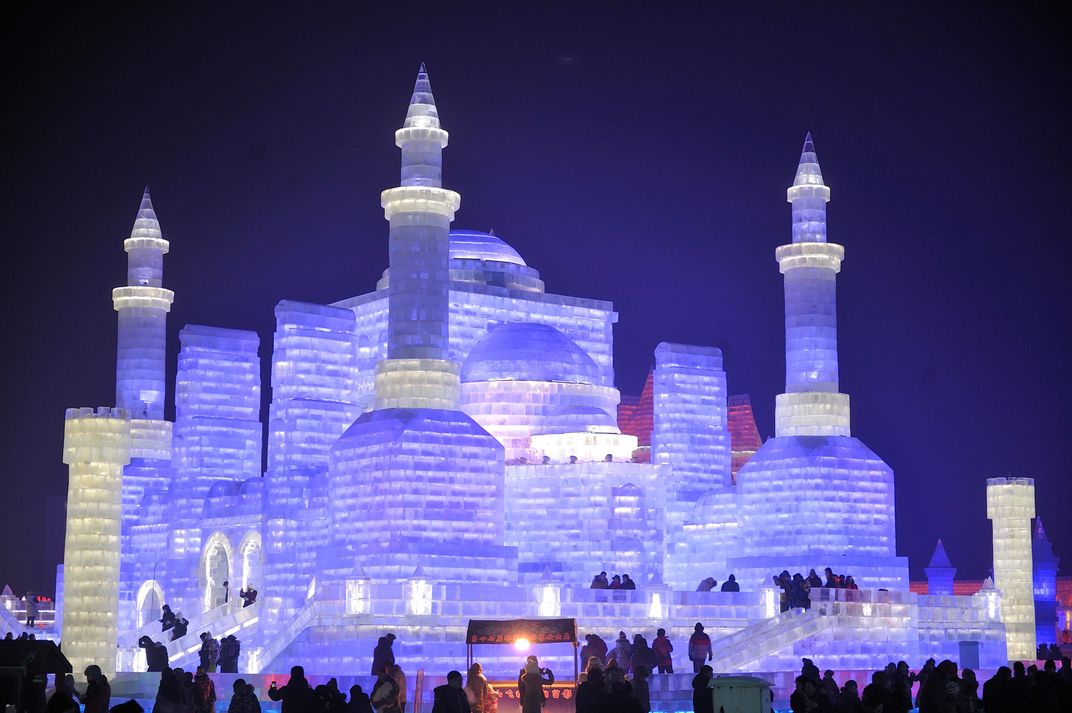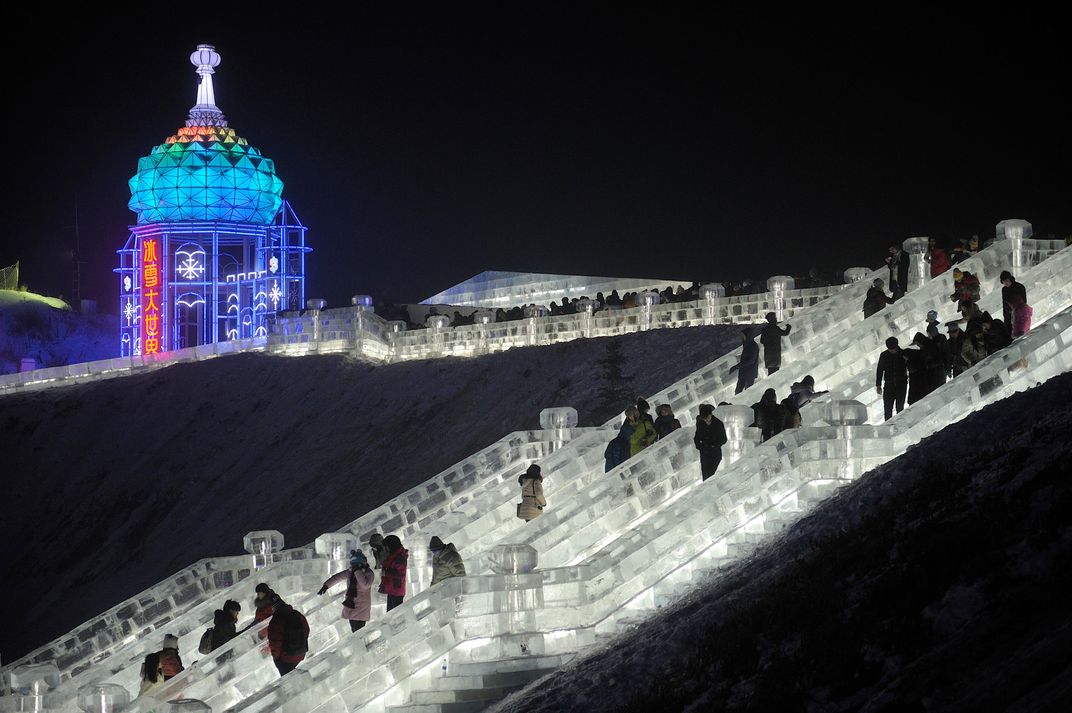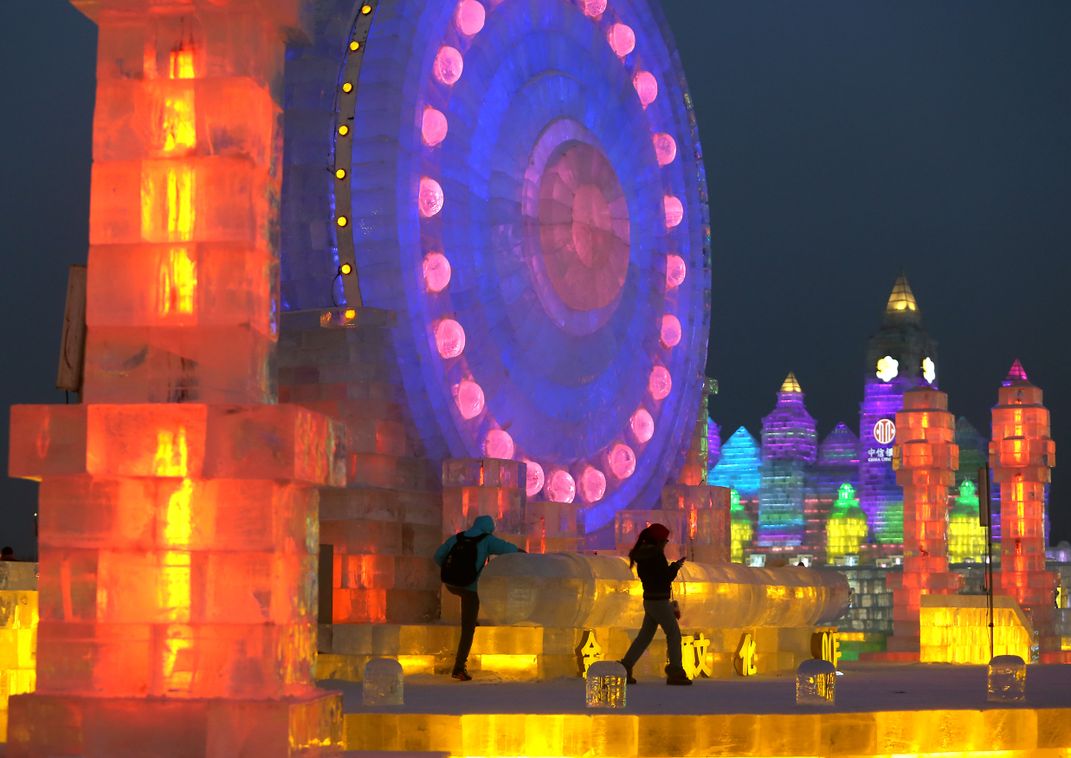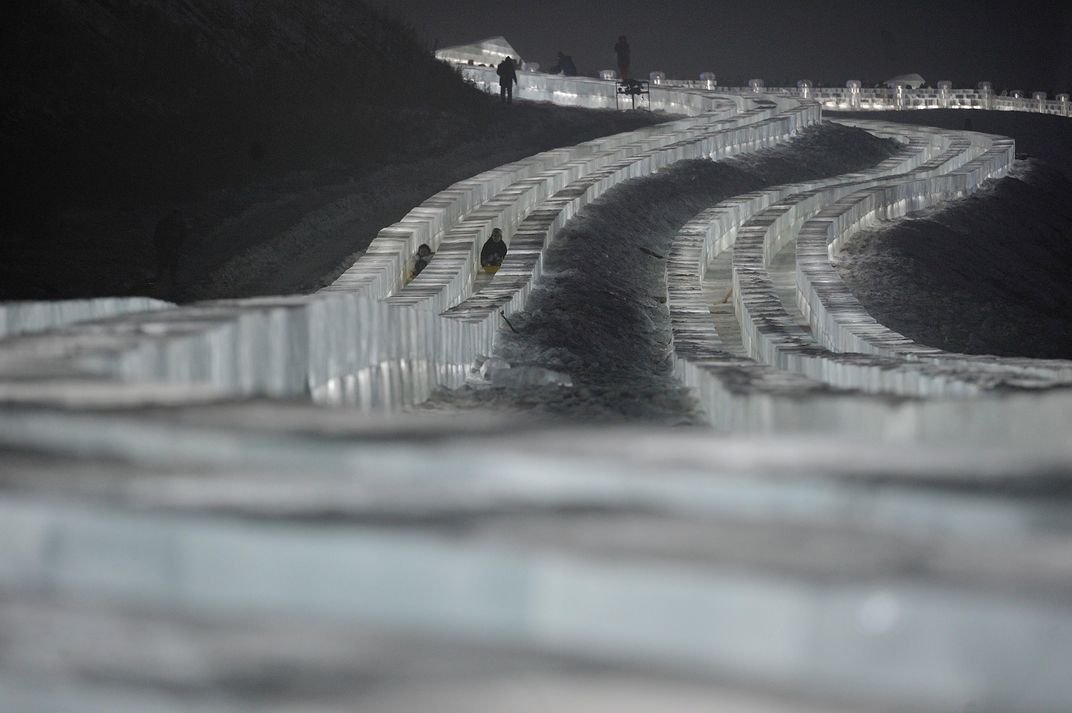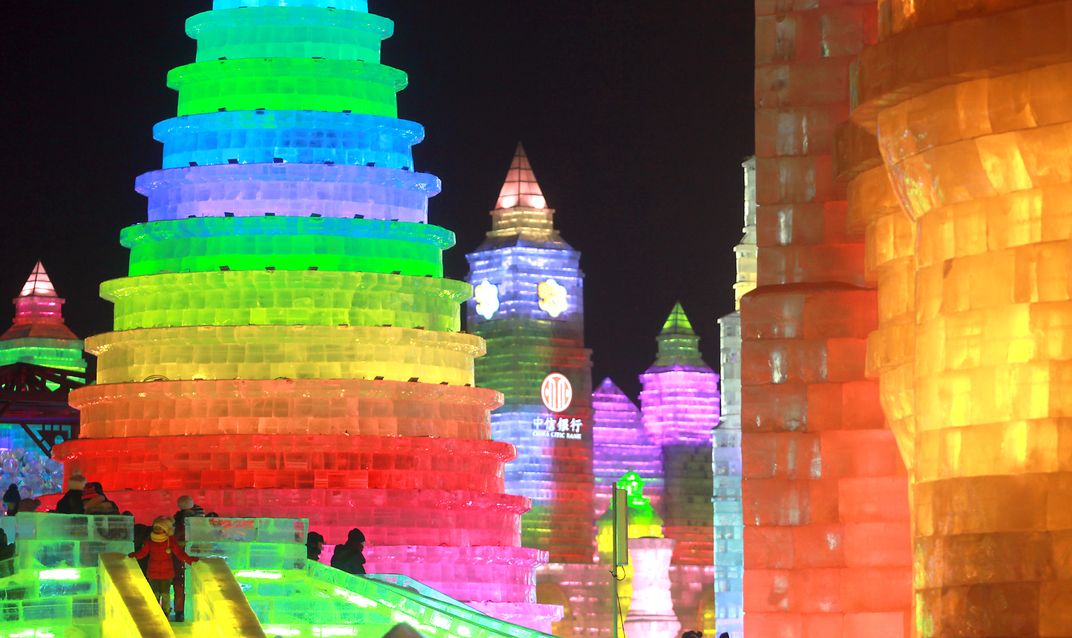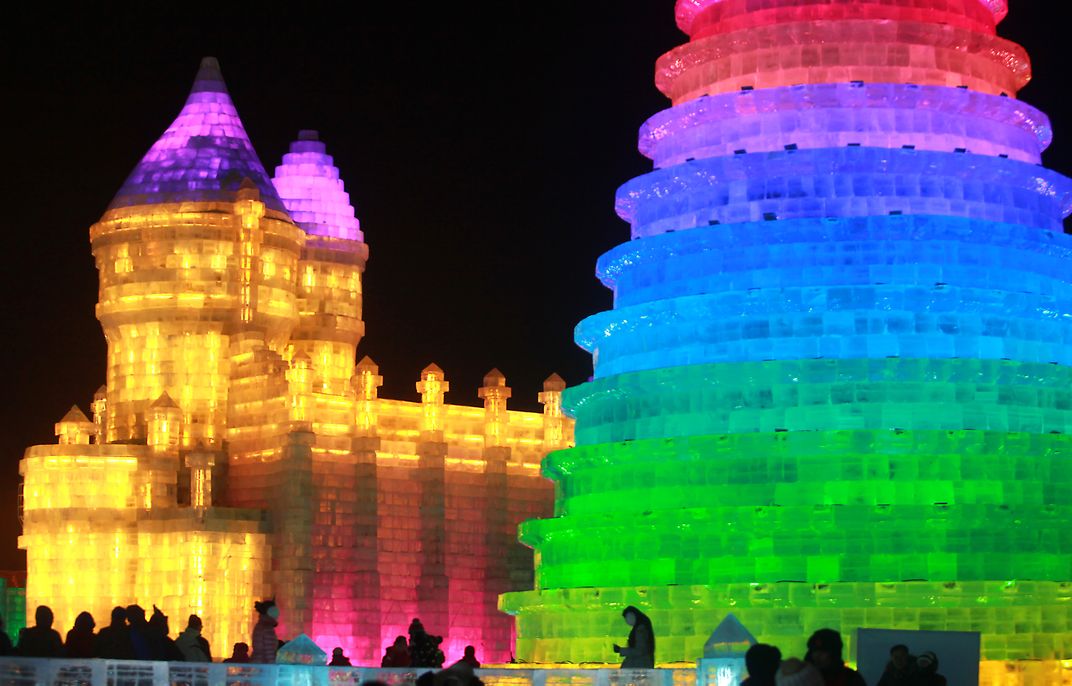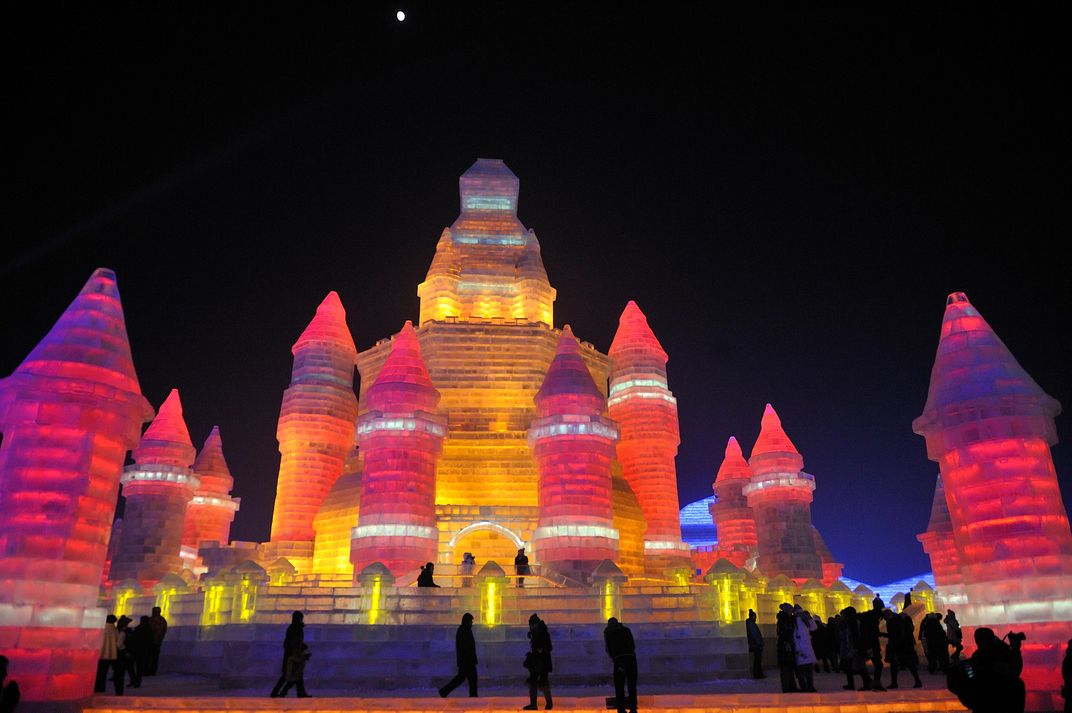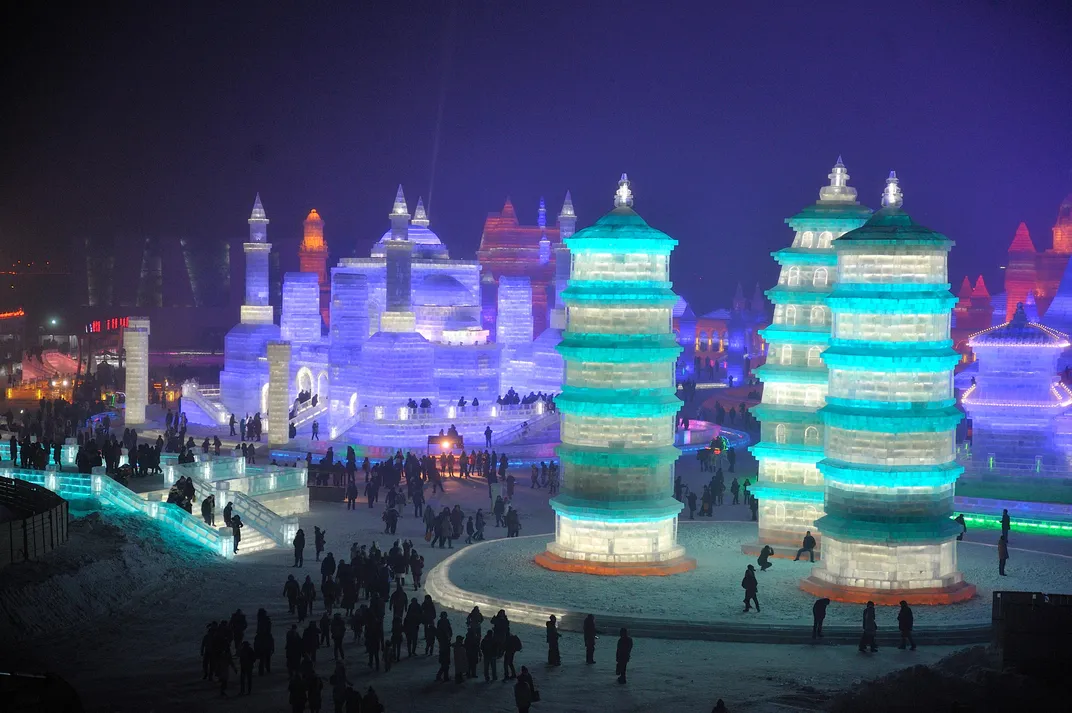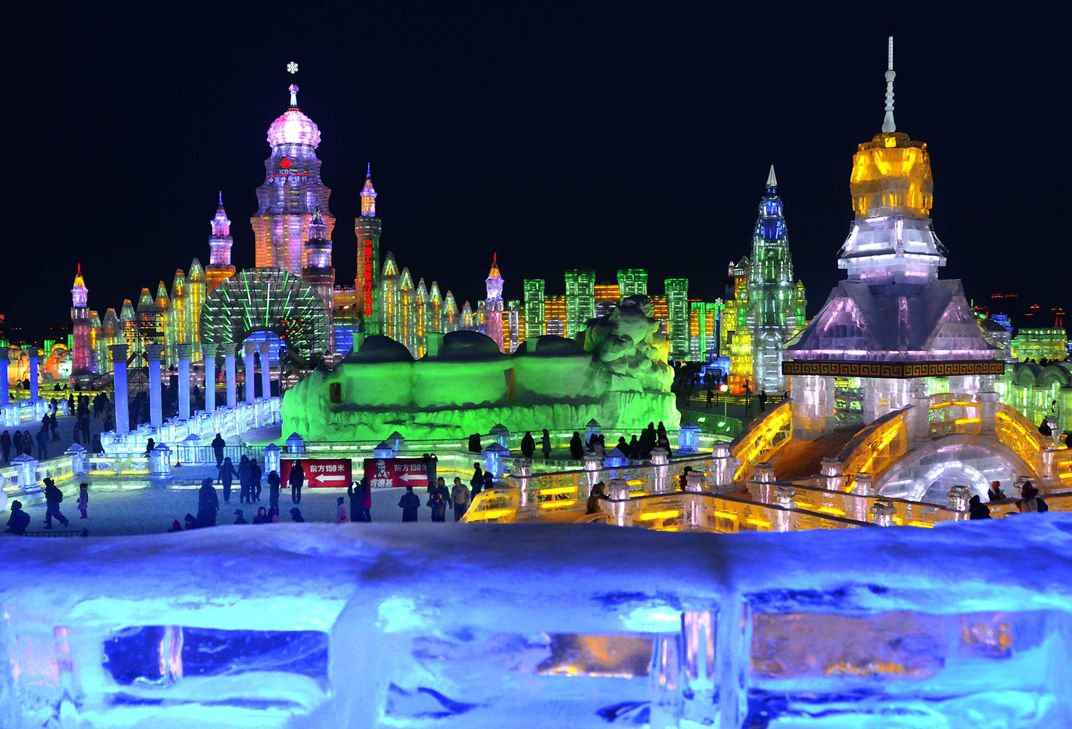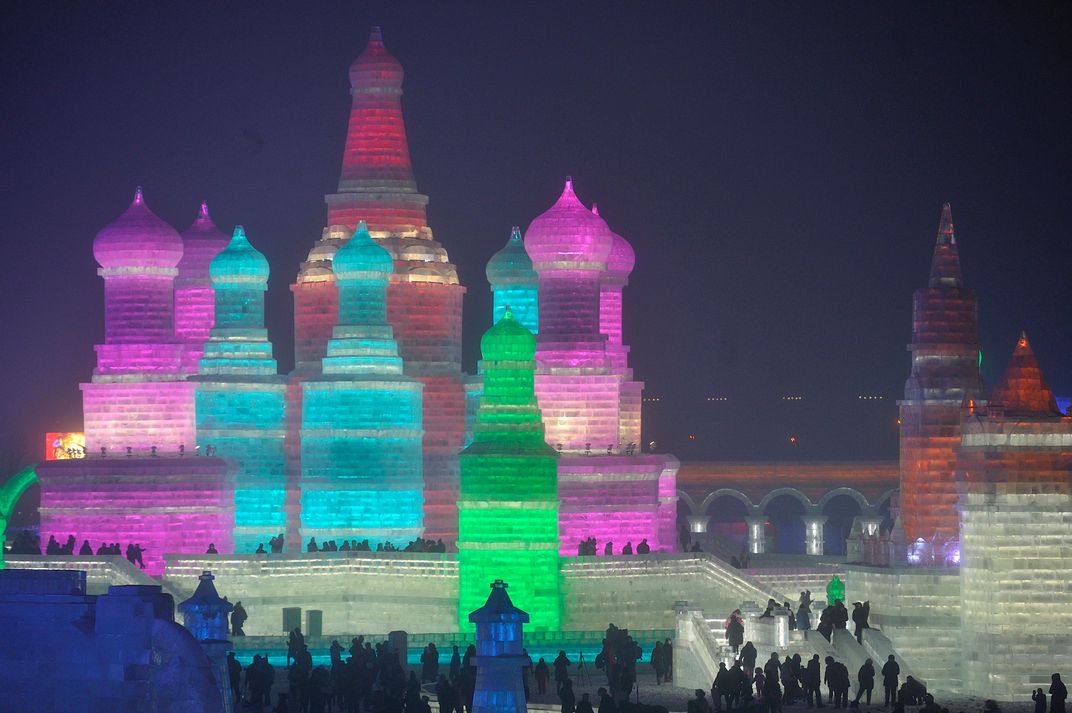All the World’s a Frozen Sculpture at China’s Ice and Snow Festival
Thousands flock to one of the country’s coldest regions to see the stunning displays
In 2000, Harbin, the capital city of China's northernmost provincea, decided to welcome the new millennium by creating a giant ice and snow exhibition. In the bitterly cold winter, where temperatures average around 20 to 30 degrees Fahrenheit below zero, thousands of sculptors and artists cut and hauled ice from the Songhua River, which flows through capital, to sculpt massive sculptures that they then illuminated with LED lights.
The result, the Harbin Ice and Snow World, has become a yearly tradition, the crown jewel of the province's famous Ice and Snow Festival that includes an art expo that features large snow sculptures and the child-friendly ice lantern fair that dates back to a centuries-old tradition of making lanterns out of frozen blocks. While the festival celebrates its 32nd anniversary on January 5, the Harbin Ice and Snow World, however, already opened its doors to the public this week.
The Ice and Snow World display takes up a massive 750,000 square meters of space, in order to make room for the hundreds of buildings created by carvers who started working on their designs in late November. Typically, sculptors choose to recreate iconic landmarks or images inspired by Chinese fairytales. In years past, many have tried their hand at recreating the Great Wall of China, the Egyptian Pyramids and Iceland's Hallgrimskirkja. After a Disney licensing company took over operations in 2009, more references from popular culture have been added to the mix. Now, it wouldn't be surprising to find Cinderella's castle or a life-size markup of Mickey Mouse nearby a Thai temple. Last year's main attractions at Ice and Snow World included a 160-foot "fairy tower" made of ice and steal, as well as full-sized steam train.

